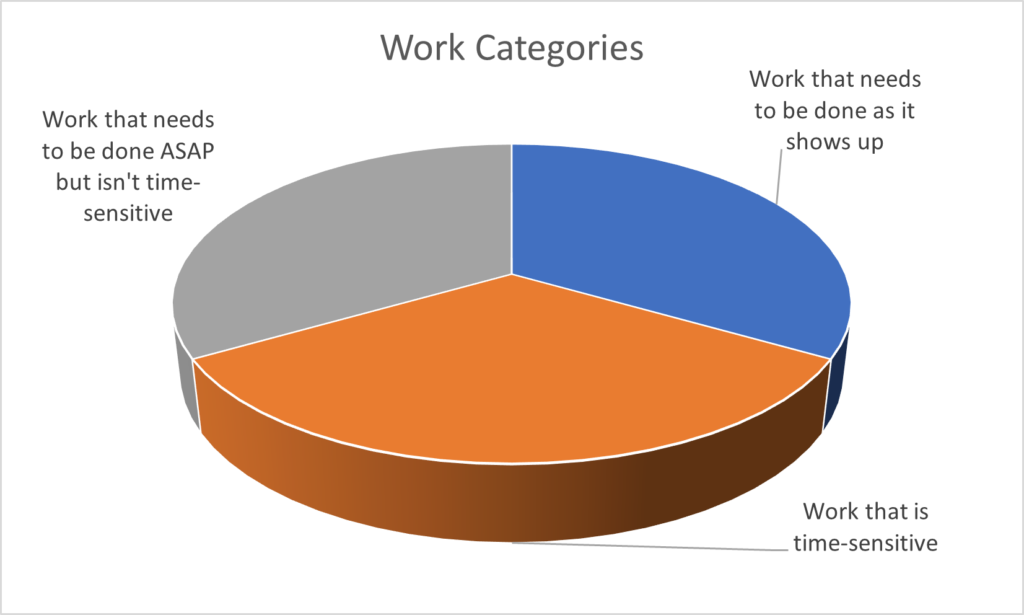In the fast-paced world of healthcare, doctors face unique challenges when it comes to managing their time effectively. With fluctuating workloads, unpredictable schedules, and the constant demands of patient care, finding a balance between professional and personal life can be a daunting task.
However, with the right strategies and mindset, doctors can optimize their time management skills and achieve greater productivity, satisfaction, and work-life integration. In this blog post, we will explore valuable insights and practical tips for time management specifically tailored to professionals with fluctuating workloads.
To effectively manage your time in a dynamic profession like yours, a rigid time-blocking method may not be suitable. Instead, you need a flexible and reliable time management system that can adapt to the changing nature of your work. This system should accommodate uncertainties, changing priorities, and the need for resilience.
Here’s a suggested approach:
(A) Divide your work into three main categories at a high level:
-
- Work that needs to be done as it shows up: This includes attending to patients without appointments or responding to emergencies. These tasks require immediate attention and don’t require specific planning or management.
- Work that is time-sensitive: This category includes patient appointments, planned procedures, meetings with stakeholders, and other tasks that are sensitive to specific days and times.
- Work that needs to be done ASAP but isn’t time-sensitive: Some tasks require prompt completion but can be flexibly scheduled within your available time. These tasks should be managed using a to-do list rather than a calendar.

An important point to remember is that this categorization is an ongoing process and you need to find every day for this. As new tasks and responsibilities arise, it’s crucial to promptly categorize them using the approach mentioned above.
(B) Utilize a Calendar App: Use a calendar app to manage time-sensitive tasks that must be done at specific times. Reserve your calendar solely for appointments, meetings, and other time-bound commitments. Avoid including tasks that don’t have strict time constraints as it may dilute the purpose of your calendar.
(C) Maintain a To-Do List: Tasks that require prompt attention but aren’t tied to specific time slots should be managed in a to-do list. When you have available time between the first two categories of work, refer to your to-do list and select a task to focus on. A concise and manageable to-do list is crucial for easy reference and decision-making.
(D) Backburner Items: Create a category for tasks that are desirable to be done but can wait beyond a couple of weeks. These are lower-priority tasks that can be reviewed during the weekends. Assess whether any action items from this list should be moved to your active to-do list or vice versa.
The strength of this method lies in its ability to adapt to uncertainties and plan work accordingly. You can confidently attend to unplanned yet important tasks, knowing that your to-do list will remind you of pending work upon your return. If a planned task gets rescheduled, you can take advantage of the newfound time to address items from your to-do list.
It is a well-known fact that the mind tends to dwell on unfinished work, creating mental clutter and distraction. Once you have implemented such an organized time management system, you will utilize your time most effectively and so be very productive. You will also experience significant relief from the mental burden of constantly remembering pending tasks. That will lead to an increased focus on the work and hence the increased quality of the output.
Subscribe to my newsletter, to get tips like this and more, directly in your inbox!
(Originally published in Times of India on June 24, 2023)






